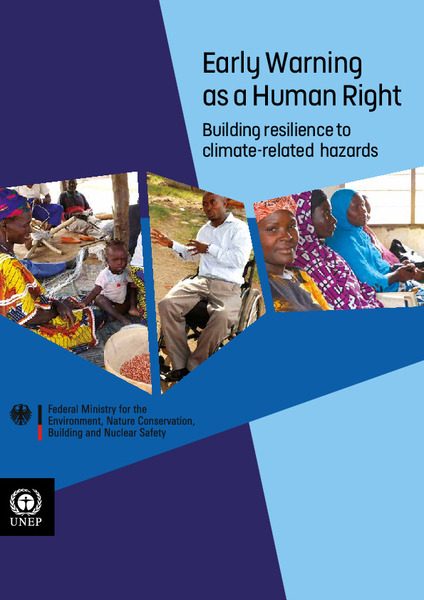Early warning as a human right: building resilience to climate-related hazards

Date
2015Author
United Nations Environment Programme
Citation Tool
Bibliographic Managers
RT Generic T1 Early warning as a human right: building resilience to climate-related hazards A1 United Nations Environment Programme YR 2015 LK https://wedocs.unep.org/20.500.11822/7429 PB United Nations Environment Programme AB TY - GEN T1 - Early warning as a human right: building resilience to climate-related hazards AU - United Nations Environment Programme Y1 - 2015 UR - https://wedocs.unep.org/20.500.11822/7429 PB - United Nations Environment Programme AB - @misc{20.500.11822_7429 author = {United Nations Environment Programme}, title = {Early warning as a human right: building resilience to climate-related hazards}, year = {2015}, abstract = {}, url = {https://wedocs.unep.org/20.500.11822/7429} } @misc{20.500.11822_7429 author = {United Nations Environment Programme}, title = {Early warning as a human right: building resilience to climate-related hazards}, year = {2015}, abstract = {}, url = {https://wedocs.unep.org/20.500.11822/7429} } TY - GEN T1 - Early warning as a human right: building resilience to climate-related hazards AU - United Nations Environment Programme UR - https://wedocs.unep.org/20.500.11822/7429 PB - United Nations Environment Programme AB -View/Open
Item Statistics
Display item statisticsMetadata
Show full item recordDescription
Early warning systems (EWS) can improve resilience of households to climate related hazards, by providing information for early action. However, to be effective, early warning systems must themselves incorporate aspects of resilient systems: diversity, flexibility, local relevance, learning, acceptance of change, consideration of justice and equity.
Collections
Document Viewer
To read more, scroll down below.

